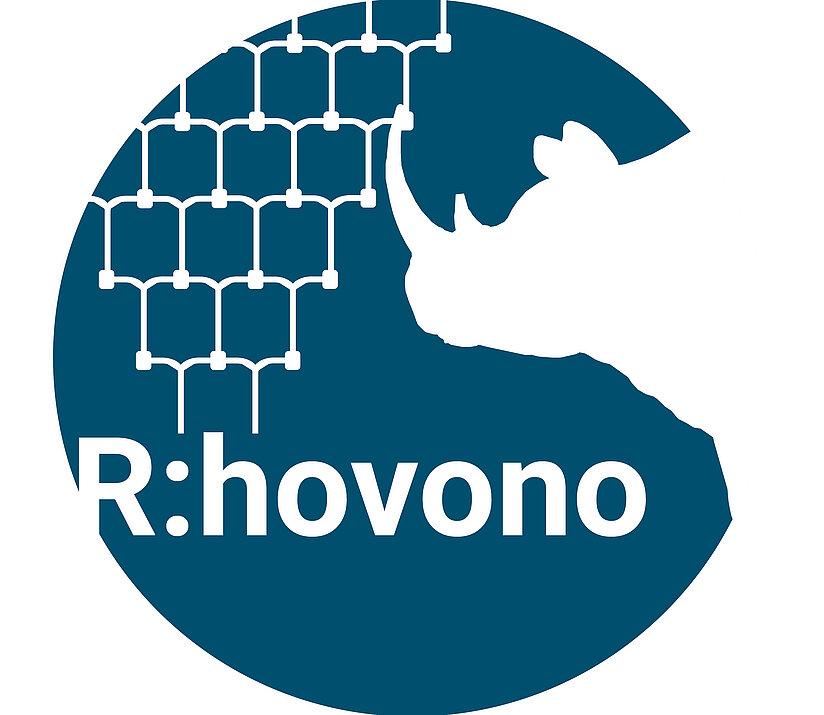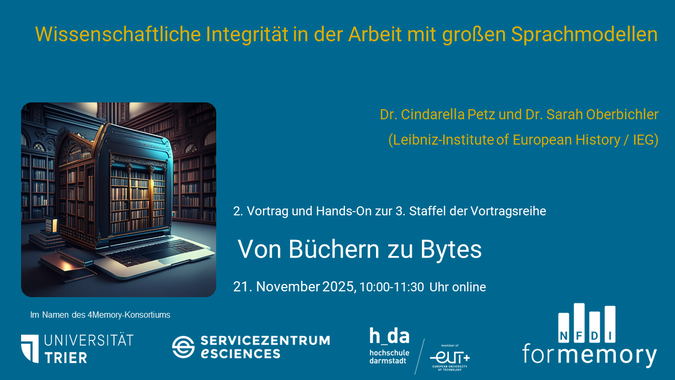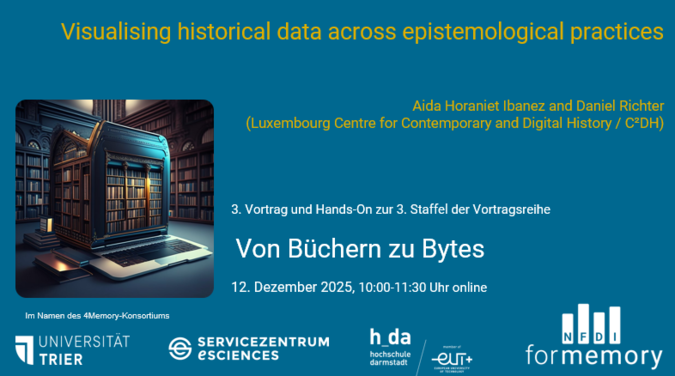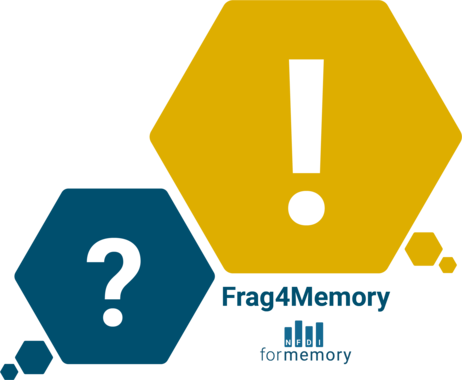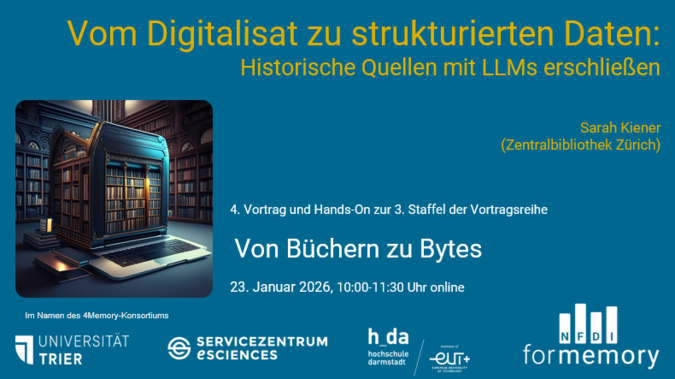... the Future of the Past.
4memory ist ...
NFDI4Memory integriert erstmals historische Forschungs-, Gedächtnis- und Informationseinrichtungen in einer digitalen Forschungsdateninfrastruktur. Mitarbeitende aus dem institutionsübergreifenden Netzwerk ermöglichen durch die Entwicklung innovativer Methoden und Services die nachhaltige Transformation der historisch arbeitenden Geisteswissenschaften.
Das Konsortium erschließt auf Basis digitalisierter und digitaler Daten sowie digitaler Methoden neue Bereiche für die historische Forschung, indem es optimierte Infrastrukturen und Dienste für Forschungsdaten einführt, etabliert und vermittelt. NFDI4Memory identifiziert Schlüsselinnovationen für die Geschichtswissenschaft im digitalen Zeitalter und fördert ihre Entwicklung, um sie in bestehende Strukturen und Prozesse zu integrieren und ihre breite Akzeptanz innerhalb der Geschichtscommunity sicherzustellen.


